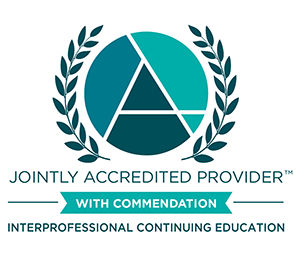- Veronica Watson
Series Overview
The goal of this educational activity is to examine the latest development and current techniques in general surgery as they relate to a variety of featured topics. Using a disease-orientated approach along with panel discussions, didactic lectures, and participant engagement, the activity will cover a broad spectrum of diseases. Monthly, each division of our general surgery group will cover current topics.
Intended Audience
MD/DO, RN, PA, and APRN.
Planning Committee
| Rebecca Sippel MD, Chair | Veronica Watson, EdD, Coordinator | Samantha Lorenz, PA |
Accreditation
Accreditation Statement
 | In support of improving patient care, the University of Wisconsin–Madison ICEP is jointly accredited by the Accreditation Council for Continuing Medical Education (ACCME), the Accreditation Council for Pharmacy Education (ACPE), and the American Nurses Credentialing Center (ANCC) to provide continuing education for the healthcare team. |
Credit Designation Statements
American Medical Association (AMA) | |
The University of Wisconsin–Madison ICEP designates this live activity for a maximum of 1.5 AMA PRA Category 1 Credit(s)™. Physicians should claim only the credit commensurate with the extent of their participation in the activity. | |
AAPA Credit Designation Statement The University of Wisconsin–Madison ICEP has been authorized by the American Academy of PAs (AAPA) to award AAPA Category 1 CME credit for activities planned in accordance with AAPA CME Criteria. This activity is designated for 1.5 AAPA Category 1 CME credits. PAs should only claim credit commensurate with the extent of their participation | |
| American Board of Surgery Continuous Certification CME Only Successful completion of this CME activity enables the learner to earn credit toward the CME requirement(s) of the American Board of Surgery’s Continuous Certification program. It is the CME activity provider's responsibility to submit learner completion information to ACCME for the purpose of granting ABS credit. |
Continuing Education Units | |
The University of Wisconsin–Madison ICEP, as a member of the University Professional & Continuing Education Association (UPCEA), authorizes this program for 0.15 continuing education units (CEUs) or 1.5 hour. | |
POLICY ON FACULTY AND SPONSOR DISCLOSURE
It is the policy of the University of Wisconsin–Madison Interprofessional Continuing Education Partnership (ICEP) to identify, mitigate and disclose all relevant financial relationships with ineligible companies* held by the speakers/presenters, authors, planners, and other persons who may influence content of this accredited continuing education (CE). In addition, speakers, presenters and authors must disclose any planned discussion of unlabeled/unapproved uses of drugs or devices during their presentation. For this accredited continuing education activity, all relevant financial relationships have been mitigated and detailed disclosures are listed below.
* Ineligible companies are those whose primary business is producing, marketing, selling, re-selling, or distributing healthcare products used by or on patients. The ACCME does not consider providers of clinical service directly to patients to be commercial interests.
Detailed disclosures will be available prior to the start of the activity.
Disclosures for Planning Committee
COMPETENCIES
ACGME/NURSING
Patient Care and Procedural Skills
Medical Knowledge
Interpersonal and Communication Skills
NAM/NURSING COMPETENCIES
Provide Patient/Person-Centered Care
Employ Evidence-Based Practice
INTERPROFESSIONAL EDUCATION COLLABORATIVE COMPETENCIES
Roles/responsibilities
Interprofessional Communication
Teams and Teamwork
DIVERSITY, EQUITY, AND INCLUSION COMPETENCIES
Engage in Self-Reflection
IP — COMPETENCE
As a result of participation in this educational series, members of the healthcare team will improve ability to:
- Discuss communication and collaboration with partners in care of patients
- Review best current models of treatment for patients with various disease
- Discuss effective practice management techniques across roles and teams
- Identify areas of bias in serving a multicultural patient population to offer and maintain exceptional patient care

 Facebook
Facebook X
X LinkedIn
LinkedIn Forward
Forward